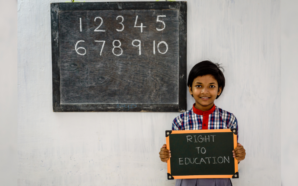March 8 is International Women’s Day. To celebrate, the Diocese of Parramatta has interviewed Harinder Sidhu about her work as High Commissioner to India.
Australia’s most senior female High Commissioner praises the religious sisters who showed her how women can lead with “wisdom, grace and confidence”.
In her adventurous and benevolent career, Harinder Sidhu has benefited humanity and now represents Australia to the 1.3 billion people of India. She remembers her roots in western Sydney with gratitude.
“When I attended what was then Nagle Girls High School, it was a very small school (not quite 300 students) and so the girls and the Sisters were very close,” Ms Sidhu told Catholic Outlook.
“For most of the time, I had Sister Marie-Jean as my religion teacher and I learned so much from her about the power of humour and compassion,” she said.
“She also had a firm belief in her guardian angel and even today, when I’m facing difficulty, I think of Sr Marie-Jean saying – with a twinkle in her eye – ‘yes, it will all work out. Because I have my guardian angel, just sitting here at my shoulder, looking out for me, and so do you.’”
“Of all the Sisters, it was Sister Mary Cannane, our principal, who I had the greatest respect for. She led the school with wisdom, grace and confidence.”
“It is fair to say that she was the first role model of a female leader I had, and I consider myself particularly fortunate to have been at school under her leadership.”
RELATED: Top diplomat returns to Nagle
RELATED: A special saint ‘of their own’
The Indian Catholic community in Australia numbers in the tens of thousands and are drawn from many different backgrounds, from Syro-Malabar Catholics (originating in Kerala) to Anglo-Indians from Kolkata and other parts of India. The Diocese of Parramatta has Chaplains to support the Tamil and Syro-Malabar communities.
“They form part of the very large and rapidly growing Indian diaspora in Australia – one of the fastest growing sources of migrants and students for Australia. And they make an active and positive contribution to all parts of the Australian community,” Ms Sidhu said.
“One of the most prominent examples was my predecessor as High Commissioner and the current Chancellor of the University of Queensland, Mr Peter Varghese.”
One of her early challenges was serving in Damascus, Syria from mid-1990, just as the Iraq-Kuwait crisis erupted.
“Most of my time in Damascus was therefore dominated by the events leading up to and after Operation Desert Storm in 1991,” she said.
“It was, of course, fascinating as a young diplomat to be in the midst of and report on a war from right next door.”
She encountered historical sites mentioned in sacred scripture, which she had learned about at Nagle College, Blacktown.
“Syria was a fascinating country – a blend of perfectly preserved historical sites dating back to biblical times (the Street called Straight was just downtown!), while under the rule of a repressive government regime,” she said.
This is where St Paul recuperated after Christ’s appearance and his conversion on the road to Damascus.
“I grew to love the country and the people, and I am sad to see the war and destruction now underway.”
The breadth of a diplomat’s work creates many opportunities to benefit humanity and Ms Sidhu is proud of what diplomacy is able to accomplish.
“At the big picture end of the scale, I was particularly proud of the contribution my team and I were able to make in negotiating an agreement on Financing for Development in the United Nations in 2015.”
“This set the frame for how developing countries can access funds from all sources to finance their efforts to meet the Sustainable Development Goals – something that can make a real difference to the lives of millions of people.
“But it is at the level of individuals that I have to say I am most proud to make a contribution.”
“Here in India, for instance, we have been long-time supporters of many NGOs which work with the poor and the vulnerable.”
The High Commission recently drew attention to people living with disability and supports such people by funding education and employment initiatives.
“This is a practical way of empowering them and improving their lives,” Ms Sidhu said.
“In 2017 the High Commission campaigned to raise the profile of and support the lives of people with disability – for which there are still relatively few facilities in India,” she said.
“Separately, we have long-standing programs in place which support the health and welfare of women and girls in India – another effort which I continue to support and of which I am very proud.”
It’s clear Ms Sidhu positively emulates Nano Nagle in more ways than one.
‘Nano’, the Irish founder of the Presentation Sisters grew up in fashionable courtly and diplomatic circles in Paris, during the imposition of the Penal Laws on Ireland. Her dedication to the poor developed from her cosmopolitan experiences in Paris and she went on to be a pioneer of education for women in Ireland.








